Moving on Up
Finance & Development, December 2014, Vol. 51, No. 4
Two-thirds of the world’s population will live in urban areas by 2050
Today, over half of the world’s population lives in cities. By 2050, this proportion is estimated to grow to 66 percent, according to a new report from the United Nations. Just three countries—India, China, and Nigeria—are expected to account for 37 percent of the projected growth of the world’s urban population between 2014 and 2050.
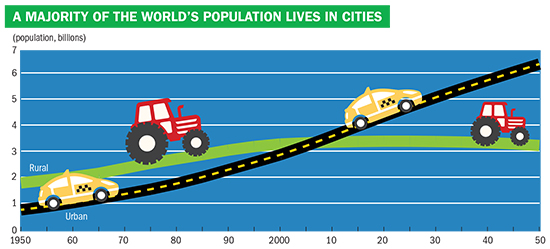
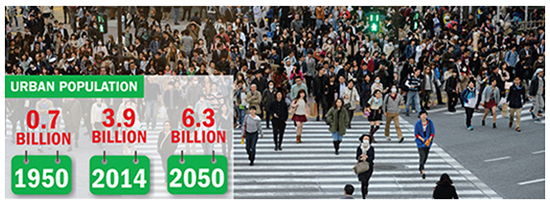
The most urbanized regions today include North America and Latin America. In contrast, Africa and Asia remain mostly rural. Over the coming decades, urbanization is expected to increase in all regions, with Africa and Asia urbanizing faster than the rest.

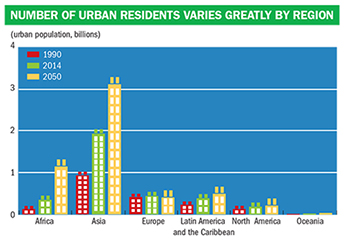
The report notes that there will be more than 40 megacities worldwide by 2030, each with a population of at least 10 million. Tokyo is the world’s largest city, with a population of 38 million. Although its population is expected to decline slightly, Tokyo will remain the world’s largest city in 2030, with 37 million people, followed closely by New Delhi with 36 million people.
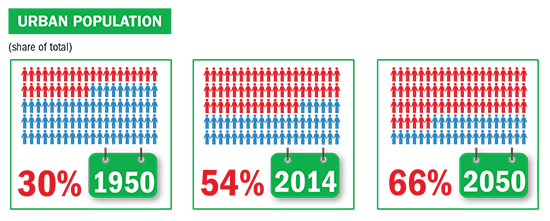
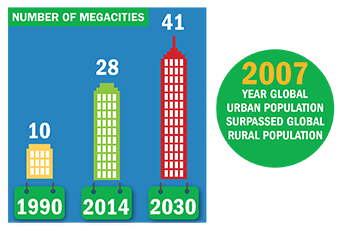
As the world continues to urbanize, the most important development challenges will be concentrated in cities, especially in lower middle–income countries, where the pace of urbanization is fastest. The report stresses that cities will need to generate better income and employment opportunities, ensure equal access to services, and expand infrastructure for water and sanitation, transportation, housing, energy, and information and communications.
Prepared by Natalie Ramírez-Djumena, a Senior Editor on the staff of Finance & Development. Text and charts are based on World Urbanization Prospects: The 2014 Revision, Highlights, published by the United Nations in July 2014. The report is available at esa.un.org/unpd/wup/Highlights/WUP2014-Highlights.pdf


